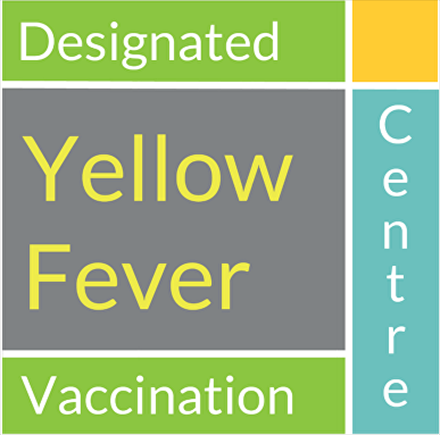Frequently Asked Questions About Yellow Fever Vaccinations in the UK

Yellow fever is an acute systemic disease caused by the Flavivirus. Acute illness means that it occurs suddenly, whereas systemic means that it affects a person's entire body.
Yellow fever can cause bleeding into the skin,and a high fever. In severe cases, it can also destroy liver and kidney cells. Severe liver damage causes severe jaundice (a condition that causes skin yellowing; thus, the term "yellow fever.")
Yellow fever is preventable with immunisation. And, travellers should protect themselves against mosquito bites when visiting places where yellow fever is transmitted. Therefore, before traveling to locations where yellow fever is prevalent, all travellers should get immunised against yellow fever. Travelers should also get a booster shot after 10 years if they continue to travel or reside in yellow-fever endemic regions.
Where Can You Be Vaccinated Against Yellow Fever?
The majority of local pharmacies provide travel clinic services. You can schedule an appointment with them to get vaccinated against yellow fever before traveling. The immunisation is simply a precautionary step against developing yellow fever. Keep in mind that the vaccine is only useful if you get it before your travels, not after that.
How is Yellow Fever spread?
People contract the virus when bitten by a virus-carrying mosquito. The mosquito bites are more during daytime hours, particularly around dawn and dusk. You can also get it from a mosquito infected by a virus-carrying person.
What are the Yellow Fever symptoms?
A majority of people experience the following symptoms after contracting the virus:
- Fever
- Headaches
- Muscle aches
- Flu-like symptoms
- Chills and shivers
- Slow heart rate
- Decreased appetite
In rare cases, some individuals may experience more severe symptoms such as:
- Abdominal pain
- Liver failure
- Kidney failure
- Jaundice (yellowing of eyes and skin)
- Bleeding (nose bleeds, vomiting blood, bleeding gums, and blood in the stool)
Which Countries Are Prone toYellow Fever?
Yellow fever is predominant in Sub-Saharan Africa. It is also prevalent in Trinidad & Tobago, Panama, and South America.
Who should not be vaccinated against yellow fever?
- If you have severe flu & cold or sinus or pulmonary infection.
- Pregnant women or those hoping to conceive in the near future.
- Individuals with weakened immune systems (HIV/AIDS).
- If you have an egg, gelatine, or chicken allergy.
- If you have a family history of thymus illness, such as thymoma, myasthenia gravis, or previous thymus gland excision.
- Individuals who are battling cancer or receiving cancer treatment.
- Anyone who has been taking steroids for a period of more than two weeks.
Possible Side Effects of Yellow Fever Vaccine
Generally,the side effects of this vaccine are moderate, and symptoms can last 5-10 days after being vaccinated. Some of these side effects may include:
- Headache
- Mild fever
- Discomfort at the site of injection
- Weakness
- Rash
- Myalgia
children may cry and experience loss of appetite, irritability, vomit, or experience drowsiness after the immunisation.
On rare occasions, an individual may experience severe side effects such as itching, difficulty breathing & swallowing, rash, and swelling of the tongue, face, or other body parts.
At Regent Street Clinic™ Sheffield we offer yellow fever vaccination service to private patients.
- Industry
- Art
- Causes
- Crafts
- Dance
- Drinks
- Film
- Fitness
- Food
- Games
- Gardening
- Health
- Home
- Literature
- Music
- Networking
- Other
- Party
- Religion
- Shopping
- Sports
- Theater
- Wellness
- News


